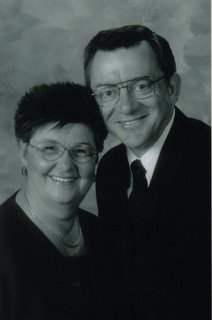“I’m so frustrated with my husband.
I want him to sit on the couch with me but he flops into his chair, watches a bit of television and falls asleep. How do I get him to spend with me without the TV or computer?
He’s a good provider, he never mistreats me but I feel so lonely.
Is there something wrong with me?”
No, there was nothing wrong with her. She wanted to spend quality time with her husband. Her love tank was running on empty because he was not spending quality alone time with her. Quality time means looking at each other while talking. It means turning off the television, putting down the newspaper and giving undivided attention. Remember when you dated you could talk about anything for hours? You may not have known it but you were giving quality time to each other. If that is your primary love language then those times were very special to you.
I love to watch people in restaurants. It’s fairly easy to pick out the ones who are dating from those who have been married for awhile. To the dating couple the food hardly matters, to the married couple it’s all that matters. If your spouse’s love language is quality time then eye to eye conversation over a meal or dessert is a powerful expression of love.
A key component of quality time is togetherness. It’s possible to be together in one room but not be together emotionally. Talking on the phone, watching the news or reading a paper in the same room is not togetherness. That is a roommate relationship. Quality time means giving full attention to your spouse. We play lot of table games at our house. Sometimes I win, sometimes I don’t but that's not the point. The point is togetherness. We talk about our hopes and dreams, our children and grandchildren, our plans for our future, and the game becomes the vehicle through which we give quality time to each other.
There are other ways this goal of togetherness can be achieved. Going for walks together, going for rides without the stereo turned on or enjoying a picnic in the park, planting a garden, visit garage sales, wash the car together, listen to music are just a few ways you can share quality time with each other. It’s not what you do that matters, it the reason for doing what you’re doing that matters. And if the reason is quality togetherness then every such activity strengthens your marriage. It also builds a memory back of activities from which to draw at a later date. “Remember when….” can be the opening line for a shared trip down memory lane.
Spending quality time together provides the opportunity to get to know one another at a much deeper level. It’s the time to talk and listen, a time for self revelation and loving acceptance, time to empathize and sympathize; time to learn to bear one another’s burdens in the safety of loving relationship. It takes an investiture of time but the dividends are truly wonderful. And I assure you, it’s much easier spending quality time with each other now than it is trying to restore a broken relationship in a counselor’s office.
If you are married to a person with quality time as a primary love language here are some suggestions you might try.
1. Drive or walk through your spouse’s childhood neighborhood. Ask questions about childhood experiences, dreams, achievements.
2. Share a lunch with your spouse in a park. Be sure to turn off your cell phone or pager and focus on talking with each other.
3. Think of an activity your spouse likes but you don’t enjoy like the symphony or football game. Tell your spouse you want to join him in one of these activities, set a date and be sure to attend.
For these and more ideas on spending quality time together see The Five Love Languages by Gary Chapman
John and Anne Neufeld have a counseling practice specializing in marriage and premarriage issues. They also conduct marriage seminars for churches and groups across the country. Do you have topics you’d like to see addressed in this column? Email them and they will try to address them in future articles. They can be reached at focused44@shaw.ca or 204-326-4263

